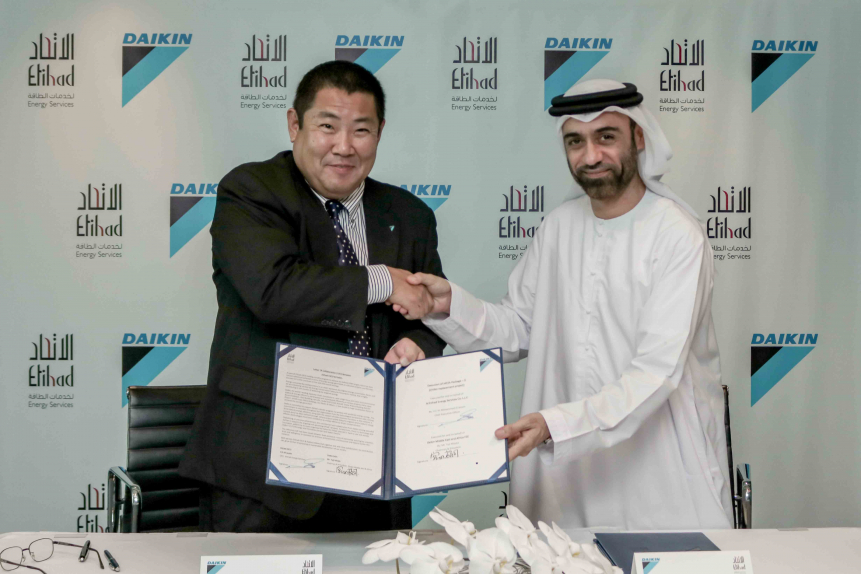Etihad Esco partners with Daikin for Jafza retrofit project
The project will result in energy savings of 3,019,679 kWh, thereby saving $365,800, annually

Etihad Energy Services Company (Etihad Esco) has announced their partnership with Daikin, for the replacement of existing chillers with advanced, energy efficient chillers as part of the Jafza Package 3 energy retrofit project.
The agreement was signed by Ali Al Jassim, CEO at Etihad Esco and Yuji Miyata, chairman and president for Daikin Middle East and Africa. The project will replace 15 existing chillers with 15 new inverter chillers for 11 of Jafza’s facilities. This will result in energy savings of 3,019,679 kWh, thereby saving $365,800 annually.
Al Jassim said: “We are confident of Daikin’s capabilities to contribute to the success of Package 3 chiller replacement project, which will result in significant savings for Jafza in terms of energy and cost. We are glad to enter into this strategic agreement with Daikin, building on the success of collaborations we have had in the past, to further contribute towards the achievement of 30 per cent reduction in energy demand by 2030 set by the emirate.”
Etihad Esco has been working with Jafza to facilitate its transformation into an energy efficient zone and had renewed its partnership with Jafza for Package 3 to retrofit its Lease Office Building and food courts.
Miyata added: “Daikin’s commitment to support Etihad’s retrofit program extends throughout the organization from the technological perspective and is in alignment with our efforts to support energy efficiency initiatives in the region and globally.”
“Furthermore, this latest partnership with Etihad Esco is a significant step towards achieving our overarching goal of creating new value to solve impending and long-term environmental challenges.
“We remain committed to providing efficient and reliable solutions to our partners, and we attribute our leading market position to the array of support services we offer that ensure the unparalleled performance of our systems,” concluded Miyata.

























